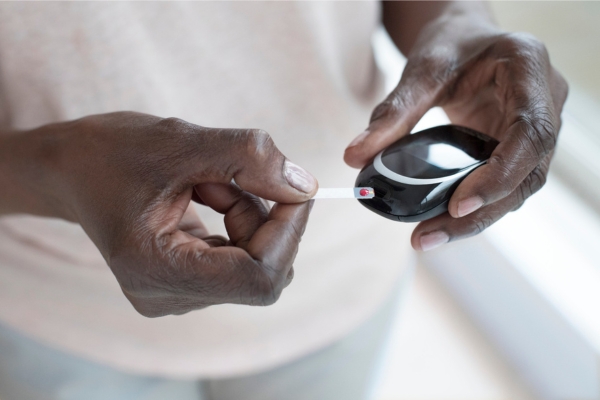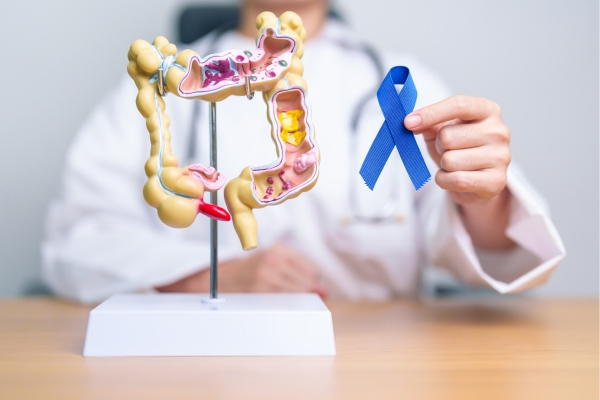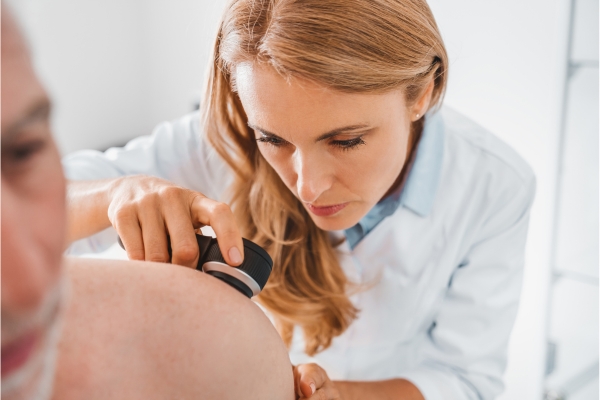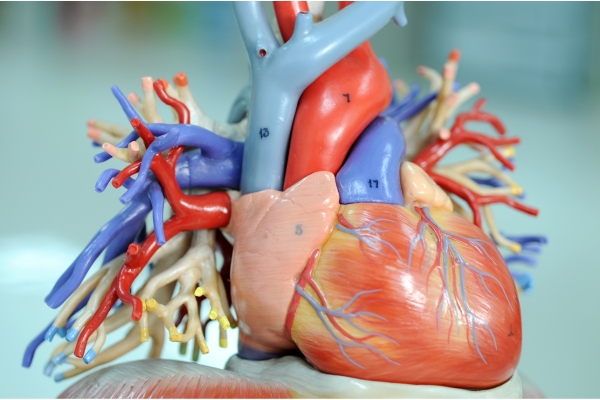Physical activity and diet play a crucial role in men’s overall health, but health screenings are just as important. Getting screenings regularly can mean early detection, diagnosis, and treatment of various conditions and improve overall health and wellbeing. Following are 10 essential screenings for men that includes general age and other recommendations. However, men should consult with their doctors to determine their needs, including the best timing.
Blood Pressure
High blood pressure, which is often asymptomatic, increases the risk of heart attack and stroke. All men age 18 and up should have their blood pressure checked regularly. The ideal range is 120/80 or below, and those in the range of 120-139/80-89 are considered high and should be checked annually. Individuals with blood pressures higher than that should see a doctor right away.
 Diabetes
Diabetes
Men are more likely to develop diabetes as compared to women, according to the CDC, and uncontrolled diabetes can contribute to other health issues, ranging from heart disease to nerve damage. Men 18 and older with a body mass index (BMI) of more than 25 with other risk factors should be tested for diabetes. Men over age 45 should be screened every three years.
Cholesterol
High cholesterol can lead to heart disease and stroke. Men age 34 and up should have cholesterol checked every year, which can identify risk and guide lifestyle changes and medication to help control cholesterol. Those with heart disease, kidney problems, or diabetes may need to get screened more often.
Colon Cancer
 Colorectal cancer is the third most common cancer and cause of cancer deaths in American men. Detecting it early can help improve your ability to treat the disease and get better outcomes. Colon cancer screenings should begin at age 45. The frequency of the screenings will depend on family history and which type of screening is done. For those with an average risk, screenings should be done:
Colorectal cancer is the third most common cancer and cause of cancer deaths in American men. Detecting it early can help improve your ability to treat the disease and get better outcomes. Colon cancer screenings should begin at age 45. The frequency of the screenings will depend on family history and which type of screening is done. For those with an average risk, screenings should be done:
- Colonoscopy: Every 10 years
- CT colonography (virtual colonoscopy): Every 5 years
- Sigmoidoscopy (stool test): Every 5 years
Prostate Cancer
Prostate cancer is one of the most common cancers in American men, but the good news is that it is treatable, especially if caught early. Men with an average risk of prostate cancer should start screening for it at the age of 50. Consult with your doctor if you have a close family history and/or are African American because you may need to be screened earlier.
Skin Cancer
 Men are at a higher risk for certain skin cancers, so regular skin checks – both self-exams and professional evaluations – are important for early detection. How often you need to get screened will depend on family and personal history, but generally, men should self-check for skin cancer once a month starting at age 18. Beginning in your 40s, you should have an annual full-body skin exam.
Men are at a higher risk for certain skin cancers, so regular skin checks – both self-exams and professional evaluations – are important for early detection. How often you need to get screened will depend on family and personal history, but generally, men should self-check for skin cancer once a month starting at age 18. Beginning in your 40s, you should have an annual full-body skin exam.
Osteoporosis
Men between the age of 50 and 75 should consult with their doctors on screening for osteoporosis, a disease that weakens bones and makes them more fragile and susceptible to fractures. Risk factors for osteoporosis include long-term steroid use, heavy alcohol consumption, low body weight, smoking, and a family history of the disease.
Abdominal Aortic Aneurysm (AAA)
 Abdominal aortic aneurysm (AAA) is a bulge or swelling in the aorta, the main artery that carries blood from the heart down through the abdomen. Typically, an AAA causes no symptoms except during rupture, so screenings are key to detecting one before it ruptures and leads to more serious issues. Smoking, high blood pressure, older age, and family history are risk factors for AAA. Men between 65 and 75 with one of these risk factors should talk with their doctor about screening.
Abdominal aortic aneurysm (AAA) is a bulge or swelling in the aorta, the main artery that carries blood from the heart down through the abdomen. Typically, an AAA causes no symptoms except during rupture, so screenings are key to detecting one before it ruptures and leads to more serious issues. Smoking, high blood pressure, older age, and family history are risk factors for AAA. Men between 65 and 75 with one of these risk factors should talk with their doctor about screening.
Lung Cancer
Lung cancer is the third most common cancer in the United States. Early lung cancer often has no symptoms and can only be detected through screenings. Men over the age of 50 who currently smoke, have quit within the past 15 years, or have a 30-pack-year total (number of packs of cigarettes smoked each day times the number of years you smoked) should talk with their doctor about screening for lung cancer.
Mental Health
 Taking care of yourself isn’t just physical – check in with your doctor about your mental and emotional health, too. Men are less likely to discuss or report symptoms associated with depression, and that has resulted in substantially higher risk of substance abuse, violence, and suicide. However, depression and other mental illnesses are highly treatable when men are connected to appropriate support and care. If you are experiencing depression or other mental or emotional issues, talk with your doctor or reach out to a mental health professional.
Taking care of yourself isn’t just physical – check in with your doctor about your mental and emotional health, too. Men are less likely to discuss or report symptoms associated with depression, and that has resulted in substantially higher risk of substance abuse, violence, and suicide. However, depression and other mental illnesses are highly treatable when men are connected to appropriate support and care. If you are experiencing depression or other mental or emotional issues, talk with your doctor or reach out to a mental health professional.
